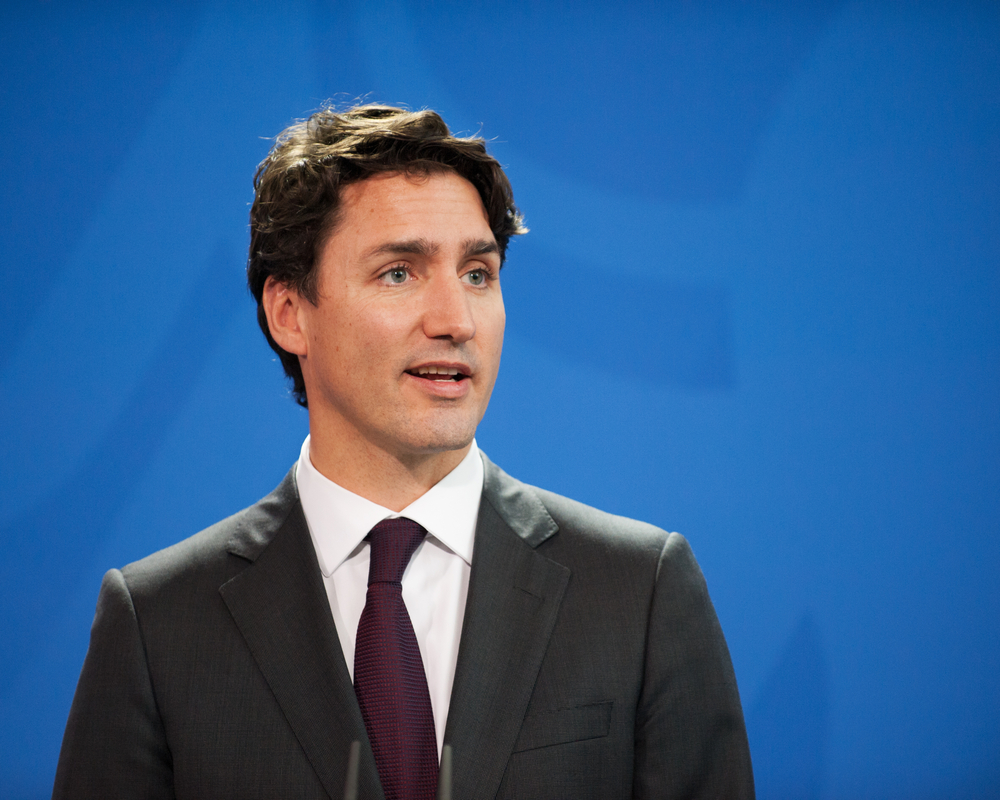
RIGA, Latvia — The stage is being set for another confrontation between world leaders and Donald Trump, with Canada and other NATO allies preparing to counter the U.S. president’s persistent complaint that they aren’t carrying their fair share of the burden of being part of the 69-year-old military alliance.
Prime Minister Justin Trudeau has even prepared an opening act on the eve of the NATO summit in Brussels that gets underway Wednesday: a full day of events in Latvia designed to shine a spotlight on Canada’s latest military commitment to the North Atlantic Treaty Organization.
Trudeau is scheduled to visit the military base in Adazi, where 450 Canadian military personnel are stationed as part of a key NATO battle group in Latvia, established as the alliance’s response to Russia’s surprise annexation of Crimea in 2014 and its invasion of eastern Ukraine.
Once there, he’s expected to announce an extension of the mission in Latvia in a show of ongoing NATO solidarity.
The Canadian-led battle group is one of four in the region, and includes troops from Albania, the Czech Republic, Italy, Poland, Slovakia, Slovenia and Spain. Germany leads a similar force in Lithuania, Britain leads one in Estonia and the U.S. leads in Poland.
Speaking to NATO secretary general Jens Stoltenberg on the telephone before leaving Canada, Trudeau stressed the “importance of the alliance’s unity and solidarity on defence and security issues,” according to a readout of the conversation issued by the Prime Minister’s Office.
They also discussed Canada’s “significant contributions to the alliance” and the importance of the transatlantic bond that NATO provides to unite Europe and North America.
The message is hardly subtle, and has one overarching aim: to counteract Trump’s ongoing efforts to portray Canada and other member states as pinching pennies when it comes to the military spending target of two per cent of GDP — a benchmark agreed to by allies at the 2014 summit in Wales.
Trudeau’s photo ops with Canadian troops abroad will be aimed at buttressing Canada’s argument that it provides meaningful and substantial contributions to the alliance, even if it isn’t meeting the two per cent target.
Trump has threatened to pull out of the alliance entirely if other member nations don’t pony up.
The president acknowledged Monday on Twitter that other member states have increased their defence spending, but repeated his complaint that the U.S. contributes far more than other countries, which he said “is not fair nor is it acceptable.”
If the U.S. were to leave NATO, it would have a “huge and highly negative” affect on Canada, said David Perry, a senior defence analyst with the Canadian Global Affairs Institute.
“If you take his rhetoric at full value … it would actually start to undermine the solidarity alliance, it would be hugely consequential for Canada because NATO has been so important to it.”
Having a forum in which Canada can engage in discussions about key security issues with the U.S. as part of a larger alliance of nations also offers Canada some counterweight that doesn’t exist in North America alone, where the United States is the “800-pound gorilla,” Perry added.
But given that Trump has followed through on other threats — including tariffs on steel and aluminum imports from Canada and the European Union, as well as a full-blown trade war with China — Perry said allies ought to be concerned about the possibility that Trump isn’t bluffing.
“He does seem to have a habit of doing what he says he’s going to do.”
Concerns about U.S. disengagement have also deepened given that Trump is scheduled to meet with Russian President Vladimir Putin just days after the summit.
Some see the controversial meeting as an undermining of the alliance itself, considering some of NATO’s active military missions — including the one in Latvia — were undertaken in direct response to Russia’s escalating aggression in the Baltic region.
“The Trump-Putin summit could potentially aggravate U.S. allies who want to isolate Putin,” said Jayson Derow, a research analyst at the NATO Association of Canada.
“However, while U.S. President Donald Trump’s rhetoric has surely shaken the confidence of U.S. allies and NATO members across the Atlantic, the alliance is still standing and the Trump administration has taken tangible steps to bolster the alliance and European security, while countering Moscow with the sales of military hardware and its own deployments in eastern Europe.”
Meanwhile, Trudeau will be framing his key message that Canada remains committed to the alliance by lending its military expertise to bolster the stability and security of a region that remains essential to Canada’s national interests.
He’ll meet today in Riga with Latvian Prime Minister Maris Kucinskis and President Raimonds Vejonis, lay flowers at the monument of freedom and take part in a number of activities on the military base in Adazi. Those will include a candlelight vigil at the Latvian armed forces memorial to fallen soldiers, a vehicle display by multinational troops and remarks to Canadian military personnel.